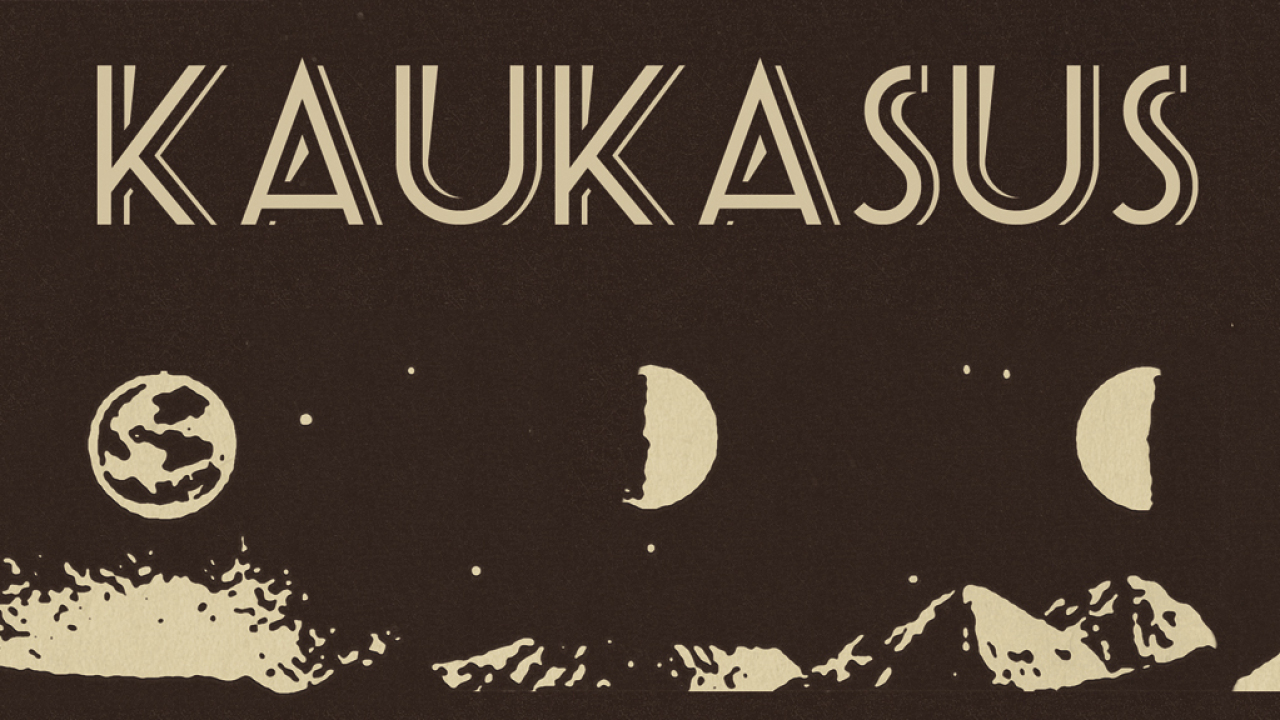Talking Prog drumming with Kaukasus
Mike Barnes discusses the finer points of progressive drumming with Kaukasus/Anglagard drummer Mattias Olssen

Select the newsletters you’d like to receive. Then, add your email to sign up.
You are now subscribed
Your newsletter sign-up was successful
Want to add more newsletters?

Every Friday
Louder
Louder’s weekly newsletter is jam-packed with the team’s personal highlights from the last seven days, including features, breaking news, reviews and tons of juicy exclusives from the world of alternative music.

Every Friday
Classic Rock
The Classic Rock newsletter is an essential read for the discerning rock fan. Every week we bring you the news, reviews and the very best features and interviews from our extensive archive. Written by rock fans for rock fans.

Every Friday
Metal Hammer
For the last four decades Metal Hammer has been the world’s greatest metal magazine. Created by metalheads for metalheads, ‘Hammer takes you behind the scenes, closer to the action, and nearer to the bands that you love the most.

Every Friday
Prog
The Prog newsletter brings you the very best of Prog Magazine and our website, every Friday. We'll deliver you the very latest news from the Prog universe, informative features and archive material from Prog’s impressive vault.
One of Barclay James Harvest’s most successful albums is Live 1974 and listening to it recently one of the things that stood out was Mel Pritchard’s drumming
He punctuates their big mellotron themes by launching out on lengthy, flamboyant snare rolls and huge fills right around the tom-toms. It occurred to me that exciting though that style is, people don’t really play drums like that anymore. It seems an ancient craft in danger of dying out, like flint-knapping or thatching.
Carl Palmer was another case in point, opening his account after a few bars of ELP’s Jerusalem with a vast, arcing multi-tom roll, just in case anyone was in any doubt of where his intentions lay.
There were many who would go out on a limb like this: the early Genesis drummer, John Mayhew, was an underrated and exciting player with a dramatic, bombastic style, while Gong’s Pierre Moerlen allied this approach to an astonishing technical facility. One who got a little too carried away was Andy McCulloch. He went on to show himself to be a player of taste and dexterity with Greenslade, but in his brief tenure with King Crimson - on Lizard (1970) - his drumming was so hyperactive and decorative it left the listener exhausted.
Over the last two decades or so, the average skill level in drummers has improved, with the playing sharper, punchier, more in time, but far more contained and less ‘outward’, with the tom-toms mainly used for accents or short flurries.
Younger drummers grew up listening to dance music and electronica and the near impossible permutations of drum & bass, some of which has fed into their style
[](https://www.youtube.com/watch?v=t2_xpSZ_h4w)
Sign up below to get the latest from Prog, plus exclusive special offers, direct to your inbox!
Classically trained percussionist, drummer and producer Mattias Olssen, who has played with Norwegian Progressive bands Anglagard and White Willow, and is now with Kaukasus, has this to say:
“With Progressive rock, we are talking about a genre of music that is still fairly young. I think a lot of drummers like Bill Bruford and Carl Palmer came from a jazz tradition. And having, let’s say, Buddy Rich, Gene Krupa and Loiue Bellson as your heroes, that will find its way into your playing. As for my favourite drummers, I think that Kratfwerk is a big influence on my playing, and Aphex Twin and Tom Waits.”
He also feels on record at least, his playing is greatly influenced by his role as producer.
“I ask myself what sort of drums would I want on this album, then I play that,” he says. “I’m not interested in cocky, showy drumming as it’s great to play live, but it’s a mess to work with afterwards.”
While there’s a certain beauty in hearing modern drummers play in this skilful, tidy way, some sound like they could just carry on juggling the beat around like that all night without ever making a mistake. Compare this to Bill Bruford’s playing with King Crimson live in 1973-74 on the Great Deceiver and The Road To Red box sets. His was a thrilling, high-risk strategy as he launched off into improvisation, suddenly slowing down or leaving gaps in breaks to cliff-hanging effect, or playing three against four and coming out on cue mid-pattern. And it was different every night.
It’s like modern footballers compared with their 1970s counterparts. Sure, they are faster, fitter and stronger now, but do they have the same flair?
[](https://www.youtube.com/watch?v=MeqcceE7v0o&index=1&list=PL5AwQvcBI14Ny5prrs3oEXhhLI5od8w3t)
Writer and broadcaster Jerry Ewing is the Editor of Prog Magazine which he founded for Future Publishing in 2009. He grew up in Sydney and began his writing career in London for Metal Forces magazine in 1989. He has since written for Metal Hammer, Maxim, Vox, Stuff and Bizarre magazines, among others. He created and edited Classic Rock Magazine for Dennis Publishing in 1998 and is the author of a variety of books on both music and sport, including Wonderous Stories; A Journey Through The Landscape Of Progressive Rock.

